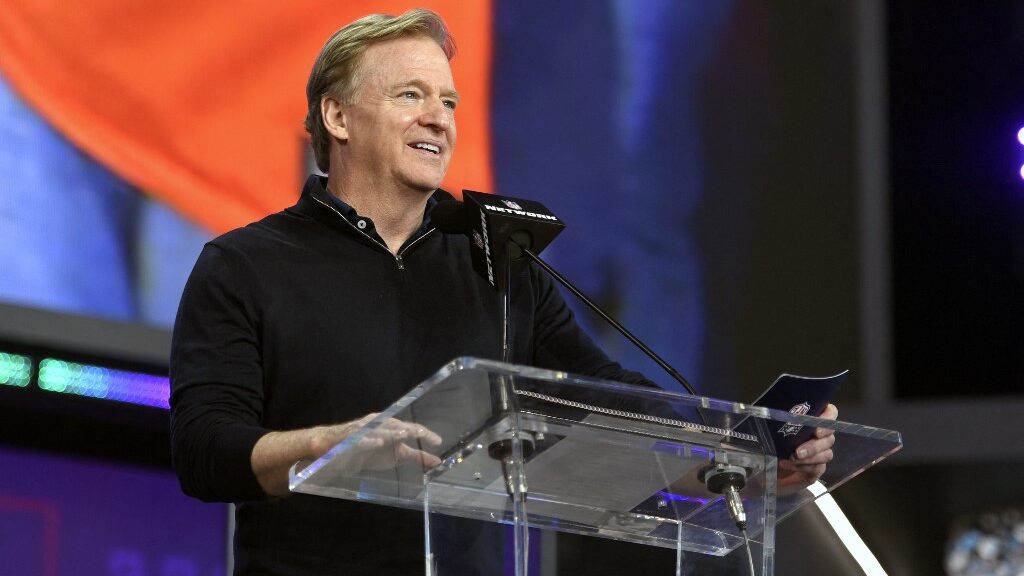
It wasn’t long ago that professional sports leagues and franchises treated sports betting like an infectious disease.
But that has changed drastically since PASPA was overturned in 2018, paving the way for legal sports betting throughout the United States, and now these industries are collaborating instead of fighting.
The Old Days
Before the Professional and Amateur Sports Protection Act (PASPA) was overturned by the Supreme Court of the United States in 2018, there was a unilateral media war being staged by the NFL against the sports betting industry.
The irony, of course, was that NFL Commissioner, Roger Goodell, knew full well that his reported $50 million per annum salary and the wild popularity of the league in which he presided was due, in large part, to sports gambling.
There was never any doubt about that, but because the NFL was not getting a direct piece of the action, it was good business for the NFL to wag its paternal finger and demonize the sports betting industry as an assault on the integrity of the game.
The inane logic went along the lines that some betting syndicate was going to be able to convince a star player, making tens of millions of dollars, to throw a game all by himself despite the fact that he is only one of the dozens of players involved in the game.
And exactly how much money would it take to convince the said player to risk the obscene amount of money he is making now and, in the future, not to mention criminal liability? Answer: Not enough – ever.
Goodell, and the commissioners who came before him, would all publicly clutch their pearls at the mere mention of sports betting before they would pontificate about the evils of the industry and how the NFL had to remain vigilant, and stand as the proverbial sentinels at the gate, to make sure it didn’t impeach the integrity of the game.
A New Era
But it wasn’t long before the PASPA was overturned that we could detect a subtle shift in Goodell’s tone and tenor.
Roger Goodell, March 28, 2017: “I think we still strongly oppose legalized sports gambling. The integrity of our game is No. 1. We will not compromise on that.”
The operative word there is “think”. Goodell knew he had to maintain his public posture against sports betting but he also knew there was a likely sea change in the near future.
And so, it was only 14 months after his statement that PASPA was deemed unconstitutional and the floodgates opened.
Roger Goodell, March 18, 2021: “We’re going to find ways we can engage fans through legalized sports betting.”
And engage them, he did. The hypocrisy of the NFL’s anti-gambling stance is only eclipsed by the unapologetic nature of their embrace of sports betting since it became legal in the U.S.
The NFL can now partner with U.S. licensed sportsbooks and enjoy a brand-new revenue stream that they previously deemed toxic but had now become an oasis.
The ruse was so transparent that Goodell probably figured everybody knew that the league’s anti-gambling stance was fraudulent, so why pretend otherwise?
Nevertheless, the feigned indignation and outrage that Goodell, and those who came before him, routinely expressed regarding the threat that sports betting allegedly posed to the NFL was so consistent, one would think any self-respecting propagandist would at least have a somewhat plausible story concocted as to why the paradigm shift.
But no, it was like flicking a light switch for Goodell. And now the NFL has seven betting partners which include Caesars, FanDuel, DraftKings, WynnBet, BetMGM, Fox Bet, and PointsBet.
Each pact runs between three to seven years with the amount paid to the league anywhere between $10 to $200 million per year depending on the size of the sportsbook.
That kind of money is not only a game-changer but it’s enough to make the following observation about Goodell and the NFL so spot on. Sometimes it’s not the people who change, it’s the mask that falls off.















